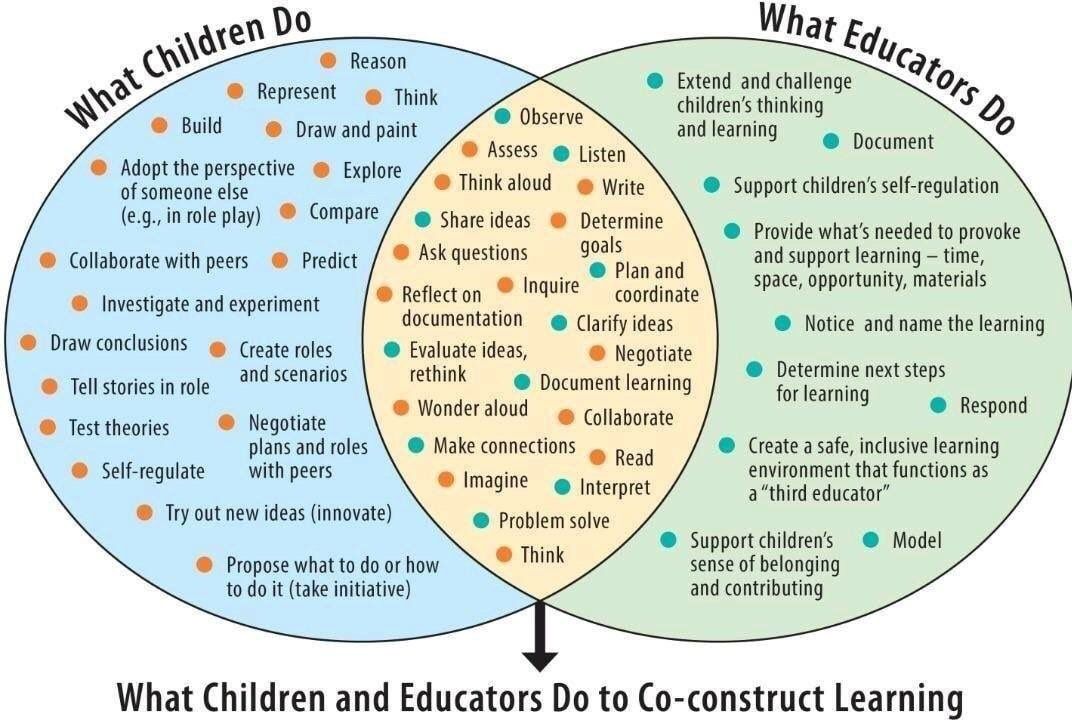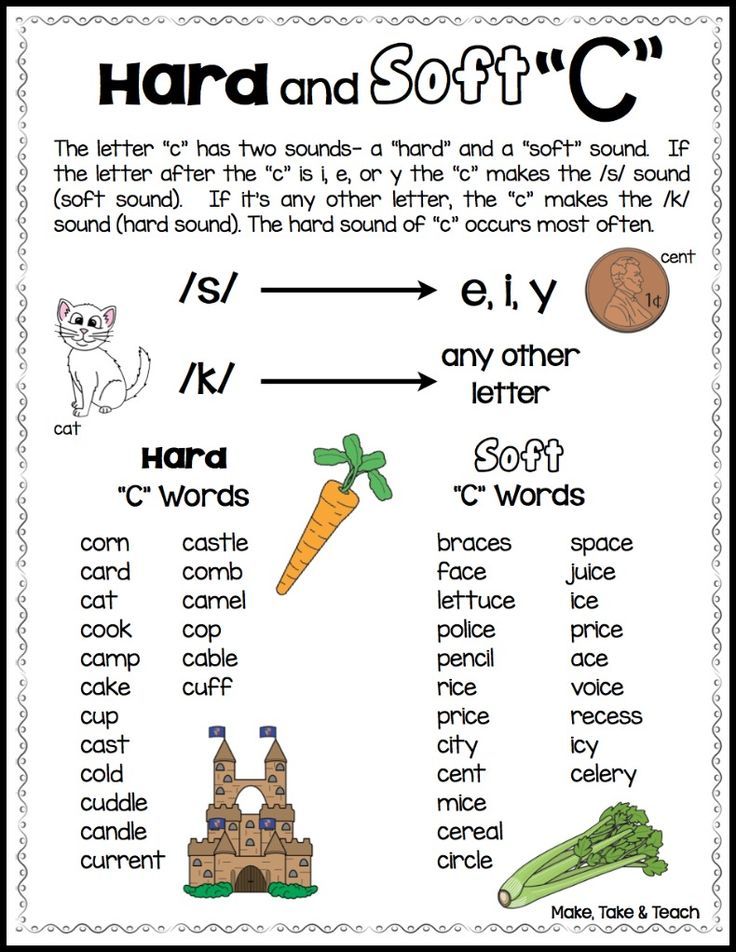How to negotiate child support
Tips for Child Support Negotiation
Negotiating child support payments can be an arduous process, often accompanied by difficult feelings from both parents. To make the process easier, consider keeping the process straightforward and non-emotional. The following are some tips to help you get through the process.
Verify Your Expenses and Income
One of the most important parts of the negotiation is to provide your income verification. Submit your check stubs and copies of your tax returns to prove your income. To prove your expenses, provide verifiable sources of your monthly expenses. This includes copies of your utility bills or mortgage or rent statements. The information helps determine a reasonable payment amount.
Agree to Exchange Information on a Yearly Basis
In the negotiation, provide a way to automatically review both you and your former spouse's income and expenses if an adjustment is necessary. Agree in your divorce that you will exchange your information each year to see if the payment amount needs to change. Doing so will save you legal fees by preventing a new court action for the adjustment.
Take Other Child Expenses Into Account
During the negotiation, do not forget to factor in your children's additional expenses, such as education and extracurricular activities. If you do not expect their activities or education expenses to change, you both need to determine how each of you will contribute to these expenses.
While you discuss the children's expenses, you should each ask your former spouse for proof of the costs of those expenses. Once you verify the expenses through bank statements, canceled checks, or receipts, you can more easily negotiate how you will each accommodate the expenses in your divorce. You simply do not want to agree to pay half of the amount if you are not certain exactly how much half of the expenses are.
Prepare to Ask to Deviate From the Standard Calculation
In many cases, the judge will use the standard child support calculation to determine how much you will either pay or receive. If you and your former spouse agree on your child support decision, ask the court to not use the standard calculation. Keep in mind the court may or may not agree to do so.
If you and your former spouse agree on your child support decision, ask the court to not use the standard calculation. Keep in mind the court may or may not agree to do so.
Keep Your Children Out of the Negotiation
You should never include your children in any child support discussion. Not only is doing so unhealthy for the children, and could possibly pit one parent against the other, but the court also frowns on this. Even if you have frustrations with your spouse regarding your child support negotiation and payments, mask the frustration in front of the children.
Remember the Meaning of Child Support
Many parents forget the reason for paying and receiving child support. If you are the parent who has to pay the support to your former spouse, you may get upset about paying him or her once the marriage is over. Keep in mind your payments are not meant for your spouse but to help support your children's daily needs.
Think about the payment as your normal contribution to the family before the divorce. In fact, paying support should make you feel good about meeting your children’s needs.
In fact, paying support should make you feel good about meeting your children’s needs.
If you are the parent who receives the child support, remember the money is to benefit the children. Do not make the mistake of using the money for an extravagant expense for yourself. If your spouse thinks you misuse the money meant for the children's needs, he or she can take you back to court for an adjustment, meaning less money for the kids.
If you need any assistance with a family law need, please contact us at (931) 283-2311.
4 Things to Bear in Mind When Negotiating Child Support
Divorce adversely affects all the members in the family. Besides, the divorcing couple has to make several tough decisions like splitting the money and the joint assets. Most of these are one-time decisions that can be made and altered according to the needs of the couple and the children. Child custody and child support payment decisions, on the other hand, are the trickiest part of a divorce settlement. Hence, it is important to get them right from the beginning.
Hence, it is important to get them right from the beginning.
For instance, divorced couples often think that once the child support agreement is signed it’s final and settled for life. However, the truth is, the contract can change depending on factors like the parents’ income and the amount of time each parent spends with the child.
Every state court uses a specific system to determine child support payments. However, the divorced couple can negotiate and mutually agree upon a child support settlement depending on their personal priorities and capabilities.
Though the court-ordered child support can be altered, it still needs to be approved by the judge. Hence, it is critical to effectively negotiate child support with the other parent to get a reasonable settlement for your child.
Consider the effective tips shared in this post when negotiating child support payments.
1) Keep Your Emotions in Control
Quite understandably, emotional tension between divorcing couples is one of the primary reasons for child support negotiation failure. Though you may find it tough to converse with your ex-pertaining to this topic, remember to keep your emotions in check and focus on getting the best child support agreement for your kid.
Though you may find it tough to converse with your ex-pertaining to this topic, remember to keep your emotions in check and focus on getting the best child support agreement for your kid.
Understand that though you are getting a divorce, you aren’t alone. Talk to a close family member or a friend you can count on or consult a qualified therapist who can help you cope with your feelings and to deal with this frustrating and stressful situation.
Be patient. Negotiations take time, especially when you have bitter emotions hovering around you. Avoid being confrontational with your ex and focus on the agenda rather than getting stuck in past issues. If your ex-attacks you emotionally, try not to take the bait. Instead, prioritize your child’s interests and generate solutions that will positively impact his/her future.
Keep your differences aside and encourage your ex-spouse to understand that child support is about your kid’s well-being and securing his/her future. This will make the process less stressful and increase co-operation from both the parties involved.
Your behavior will have a huge impact on the child support outcomes. Learning to control your emotions will help you think rationally and create a suitable environment for negotiating a justifiable child support agreement.
2) Understand How Child Support Is Determined in Your State
Believe it or not, the current child support system is based on how the judge will interpret the financial information you and your attorney have submitted to the court. Therefore, it is critical to understand how child support is determined and what information to submit in the court.
The state laws for child support vary significantly. It is wise to consult a child support attorney in your neighborhood who can guide you with local laws.
For instance, Geneva divorce law attorneys understand that the state of Illinois calculates child support based on the income shares model, where the incomes of both the parents are combined and the presumptive child support obligation is prorated between them, based on the percentage of the combined income.
The ultimate objective is to ensure your child has the same financial support that he/she would have had if you and your partner had remained together. Before getting into child support negotiations, it is advisable to learn about the entire process, the local rules, and the relevant statutes that will affect your case, enabling you to take an informed decision in favor of your child.
3) Don’t Miss a Beat: Consider All Child-Related Expenses
When determining child support, sit with your attorney and pen down all the aspects of your child’s life. In addition to your and your ex’s gross income, it is wise to consider the following factors when calculating all the child support.
- All healthcare costs associated with raising the child and medical, dental, and vision insurance
- Expenses stemming from managing specially-abled children
- Education costs
- Extracurricular/after-school activity costs
- The overall cost of living and childcare expenses
- The time each parent spends with the child
- Potential tax consequences
Work out all the costs well in advance and submit financial records like receipts for house rent agreement, paid tuitions, medical bills, and other expenditures related to your child.
4) Work with Your Ex to Prepare the Child Support Proposal
Negotiating and agreeing to a child support settlement is easier than having to consent to the one imposed by the court. When the divorced couple comes together to prepare a child support proposal, they are more likely include the unique aspects and intentions of the family in comparison to a judge who hardly knows them.
Handling money matters that will affect your youngster can be stressful. To prepare a practical child support adjustment, you and your ex should sit together and exchange your financial information. Consider the needs of your kid, prioritize them, and figure out which ones can be funded. This exercise will make it easy to agree to and sign on the proposal.
Moreover, when the couple keeps the lines of communication open, each parent gets a clear understanding of how the proposal will affect the final child support amount and whether or not any changes need to be made.
Lastly, remember to consult an experienced child support attorney or a mediator in your state and ask him/her to review the proposal, thereby ensuring all the issues that may arise in the future have been addressed. A qualified attorney can also help if your ex-withholds child support payments in the future.
A qualified attorney can also help if your ex-withholds child support payments in the future.
The divorce process can be complex and overwhelming, especially when kids are involved. Decisions like child support payments can significantly affect your kid’s future. Therefore, it is critical to have proper knowledge of your state’s laws and work with your ex to finalize an acceptable child support for your young one.
Use the information shared in this post to be most effective when negotiating child support during the divorce process.
(Image credit)
Solve the issue with alimony - more convenient and reliable through a notary
More and more Russians are turning to a notary to protect the rights of their children and ensure that they receive regular payments from a parent who lives separately. So, in the first half of 2021 alone, more than 21.2 thousand citizens applied to the notary offices of the country for certification of alimony agreements. For comparison, for the whole of 2020, this type of agreement was concluded a little more than 37.2 thousand times, which exceeded the previous year by about 20%. nine0005
For comparison, for the whole of 2020, this type of agreement was concluded a little more than 37.2 thousand times, which exceeded the previous year by about 20%. nine0005
As a rule, the breakup of a couple with children in one way or another rests on the issue of alimony. And far from always this issue is resolved quickly and with a guarantee. Last year alone, according to the Judicial Department at the Supreme Court of Russia, more than 150,000 people were held liable for failure to fulfill obligations to pay child support. Among the proposals of the legislator to solve this acute social problem are the expansion of the scope of criminal liability, arrests for 15 days, and fines. It is also proposed to rein in potential non-payers with the help of electronic technologies - a month ago, the Government of the Russian Federation announced its intention to introduce an online format for the collection of alimony payments. nine0005
Of course, the announced measures have potential. However, resolving the issue of maintaining a minor child after a divorce is often difficult even for those who do not want to go into conflict and are ready to negotiate quickly and peacefully. For such situations, a way out has existed for a long time: those who do not want to waste time and nerves in court can resolve this issue by concluding a maintenance agreement. In addition to the fact that the parties to such an agreement will no longer need to go to court on the issue of alimony, they will receive a number of other valuable advantages. The main one is the maximum guarantees for the child to receive the money due to him under the law. Even if the paying parent begins to evade the obligations prescribed in the agreement, the other party will be able to restore justice without a trial. The fact is that the alimony agreement has the force of a writ of execution and, in case of problems with payments, allows you to directly contact the bailiffs. nine0005
However, resolving the issue of maintaining a minor child after a divorce is often difficult even for those who do not want to go into conflict and are ready to negotiate quickly and peacefully. For such situations, a way out has existed for a long time: those who do not want to waste time and nerves in court can resolve this issue by concluding a maintenance agreement. In addition to the fact that the parties to such an agreement will no longer need to go to court on the issue of alimony, they will receive a number of other valuable advantages. The main one is the maximum guarantees for the child to receive the money due to him under the law. Even if the paying parent begins to evade the obligations prescribed in the agreement, the other party will be able to restore justice without a trial. The fact is that the alimony agreement has the force of a writ of execution and, in case of problems with payments, allows you to directly contact the bailiffs. nine0005
Another advantage is that the maintenance agreement must be certified by a notary. This means that such an agreement will be guaranteed to take into account the interests of both parties, comply with the norms of the law, and also allow foreseeing in advance a way out of a variety of life situations that may arise later. There are a lot of nuances that need to be taken into account in advance and that can significantly affect the payment of alimony. For example, this is the appearance of new sources of income for the payer over time or, conversely, the loss of existing ones; the entry of spouses into new marriages; the birth of other children; the payer receiving a disability, etc. All this can be taken into account in the maintenance agreement. In addition, such an agreement will necessarily clearly spell out the dates and procedure for making payments, their size and the possibility of indexation, sanctions for late payments, etc. nine0005
This means that such an agreement will be guaranteed to take into account the interests of both parties, comply with the norms of the law, and also allow foreseeing in advance a way out of a variety of life situations that may arise later. There are a lot of nuances that need to be taken into account in advance and that can significantly affect the payment of alimony. For example, this is the appearance of new sources of income for the payer over time or, conversely, the loss of existing ones; the entry of spouses into new marriages; the birth of other children; the payer receiving a disability, etc. All this can be taken into account in the maintenance agreement. In addition, such an agreement will necessarily clearly spell out the dates and procedure for making payments, their size and the possibility of indexation, sanctions for late payments, etc. nine0005
Another significant advantage of the notarial method of resolving the issue of alimony concerns the possibility of concluding such an agreement without even meeting personally with the former partner. Starting this year, notaries offer applicants, among other things, a remote format for certifying a transaction. In this case, the parties go to different notaries, who, in order to draw up an agreement, communicate with each other via secure digital communication channels. Thus, it is now possible to quickly conclude an alimony agreement, even while being with an ex-spouse in different parts of the country. Such a successful practice already exists. nine0005
Starting this year, notaries offer applicants, among other things, a remote format for certifying a transaction. In this case, the parties go to different notaries, who, in order to draw up an agreement, communicate with each other via secure digital communication channels. Thus, it is now possible to quickly conclude an alimony agreement, even while being with an ex-spouse in different parts of the country. Such a successful practice already exists. nine0005
For ex-spouses, it is better to discuss issues such as the maintenance of children “on the shore” and document them, notary experts advise. Indeed, after years, verbal agreements may be accidentally or deliberately forgotten, and the lack of a clear framework will give an unscrupulous parent more chances to evade their duties. As a result, the most vulnerable - children - will suffer.
4 practical tips if your marriage is on the verge of divorce receive the maximum amount of alimony after a divorce. nine0005
Alexandra EGOROVA
Disputes over child support is one of the most painful topics during divorce, which is not easy to go through. To keep a cool head when the family is collapsing, it is possible, frankly, few. Mutual accusations, curses, and often threats are used. Discussing money matters in such a situation is very problematic. To pull ourselves together and calm down, let's try to act on the points. There are a lot of myths about alimony among the people - but here's how you really need to act. nine0023
To keep a cool head when the family is collapsing, it is possible, frankly, few. Mutual accusations, curses, and often threats are used. Discussing money matters in such a situation is very problematic. To pull ourselves together and calm down, let's try to act on the points. There are a lot of myths about alimony among the people - but here's how you really need to act. nine0023
1. Try to negotiate with your ex-spouse
Yes, it is difficult, and sometimes very difficult. But this is the first step in the list of actions that will help you get more alimony in a divorce. As you know, according to the court, the approximate amount of alimony is calculated as follows: 25% of the spouse's salary for the maintenance of one child; 33% for two and 50% goes to alimony for three or more children (by the way, this formula has remained unchanged since 1936, when it was established). nine0005
Before submitting an application, try to sit down with your ex-husband at the negotiating table - perhaps in the end you will still be able to find a common language, and the amount of payments will exceed these notorious 25 percent (at the same time, according to the court, it can be reduced in a number cases). And don't just rely on words. The ex-husband swears that he will not leave an heir - excellent, go to the notary's office and conclude an agreement in which the amount of payments will be prescribed. If suddenly your story does not have a good ending, go to court with this document. nine0005
And don't just rely on words. The ex-husband swears that he will not leave an heir - excellent, go to the notary's office and conclude an agreement in which the amount of payments will be prescribed. If suddenly your story does not have a good ending, go to court with this document. nine0005
2. Do not give in to blackmail
Unfortunately, it also happens: a husband begins to blackmail a woman in the truest sense of the word. Like, agree to what I propose, and if you swing your rights, I’ll bring a certificate from work that I work as a janitor and receive a “minimum wage”, even if they calculate your alimony from it. This is not worth leading. Firstly, when assigning alimony, it is the total income (salary, fees, additional remuneration, earnings, etc.) that is taken into account, and not the official salary for the position. True, the presence of "gray" profit from a negligent spouse will have to be proved in court. How to do it? You can, for example, try to imagine the purchases he paid for recently, which could not be purchased with the declared "beggarly" salary. Arm yourself with evidence that your ex-spouse maintains a fairly high standard of living. In addition, do not forget that you can also collect alimony from property - apartments (if this is not the only housing), cars, etc. nine0005
How to do it? You can, for example, try to imagine the purchases he paid for recently, which could not be purchased with the declared "beggarly" salary. Arm yourself with evidence that your ex-spouse maintains a fairly high standard of living. In addition, do not forget that you can also collect alimony from property - apartments (if this is not the only housing), cars, etc. nine0005
3. Deal with income
And if there is no talk of intentional concealment of salary, but also a fixed monthly income, from which those very 25% could be written off, does the father of the child not have? Maybe he's a creative freelancer and lives on royalties from occasional projects that come and go. Then you should think about alimony in the form of a fixed amount. It is set regardless of the level of income (which in this case cannot be precisely determined), in proportion to the subsistence minimum in the country or region. There is also a minus - alimony can be very small, because, according to the law, it is necessary that the defendant himself should not be left without a livelihood. But you can prove in court that in marriage the father spent significant amounts on the child - for example, he paid for a private school. This will give grounds to demand more significant payments, only, of course, all expenses must be documented. nine0023
But you can prove in court that in marriage the father spent significant amounts on the child - for example, he paid for a private school. This will give grounds to demand more significant payments, only, of course, all expenses must be documented. nine0023
4. Learn your rights
A parent's financial contribution to a child's life is not limited to once a month only. For example, in the Family Code (Article 86) there is such a thing as “additional expenses for the maintenance of a child” - these are funds that are paid ABOVE child support. They can be demanded in an emergency - for example, if money is needed for serious treatment or the necessary rehabilitation of a disabled child. However, sometimes even utility payments for housing, the owner or one of the owners of which is a child (the latter is important), act as "additional costs". Everything here will depend on how competently the rationale is drawn up - why the actual alimony for the "communal" is not enough and in what amount more payments are needed. nine0005
nine0005
You can also increase the amount of support already determined and paid. According to the law, this is theoretically possible in the event of a sharp decrease in the income of the parent with whom the child lives after a divorce (for example, the mother was fired from work), or, conversely, a serious increase in the income of the payer. But, again, you will have to substantiate your financial claims very competently. And also, alimony assigned in a fixed amount (not as a percentage of income) is subject to indexation - if its procedure is not established by the agreement concluded by the spouses, then it is carried out in proportion to the increase in the subsistence minimum. nine0005
Another important point is that alimony can also be demanded for an adopted child (Article 137 of the Family Code). The procedure for their determination and recovery will be exactly the same as in the case of native children.
STAY INFORMED!
How to apply for child support
If you can't agree on child support, you need to apply to the Magistrate's Court. What documents will be needed:
What documents will be needed:
- statement of claim;
- child's birth certificate; nine0072
- marriage and divorce certificate;
- copy of passport;
- certificate of family composition from the housing office at the place of residence of the evading parent;
- photocopies of all documents, including the application.
If it is difficult to accurately determine the father's income, along with the application, you must provide an estimate of the funds that, in your opinion, will be required for the maintenance of the child and documentary justification for these expenses.
This is interesting
child support for a child
How to get child support for a child from her ex -husband and why elderly parents sue their children
| more |
What to do, what to do, if the ex-husband does not pay alimony
In fact, evading the payment of alimony may well entail criminal liability (the maximum penalty is imprisonment for up to a year), if the debt is very high. As for the administration, it is possible to seize bank accounts or property of a defaulter, deprive him of his driver's license. In addition, the violator of the law may be restricted from traveling abroad. For late payments, a fine is also provided - 1/2% of the amount of debt for each day of delay. nine0005
As for the administration, it is possible to seize bank accounts or property of a defaulter, deprive him of his driver's license. In addition, the violator of the law may be restricted from traveling abroad. For late payments, a fine is also provided - 1/2% of the amount of debt for each day of delay. nine0005
And by the way, such obligations do not have a statute of limitations - that is, you can demand money from the father of your child for his maintenance, even if the father appears ten years after the divorce (provided that you received a court order to collect alimony, when your common son or daughter was a minor).
But what if you have a court decision, but dad still refuses to pay? In this case, we go to the bailiff service with a statement about the need to start enforcement proceedings. Further, the bailiff can launch the measures mentioned above: arrest of accounts, travel restrictions, etc. It is important for the plaintiff himself not to yawn here - you need to constantly be in touch with the bailiff in charge of your case, provide additional information about the debtor's sources of income, if you have any.












